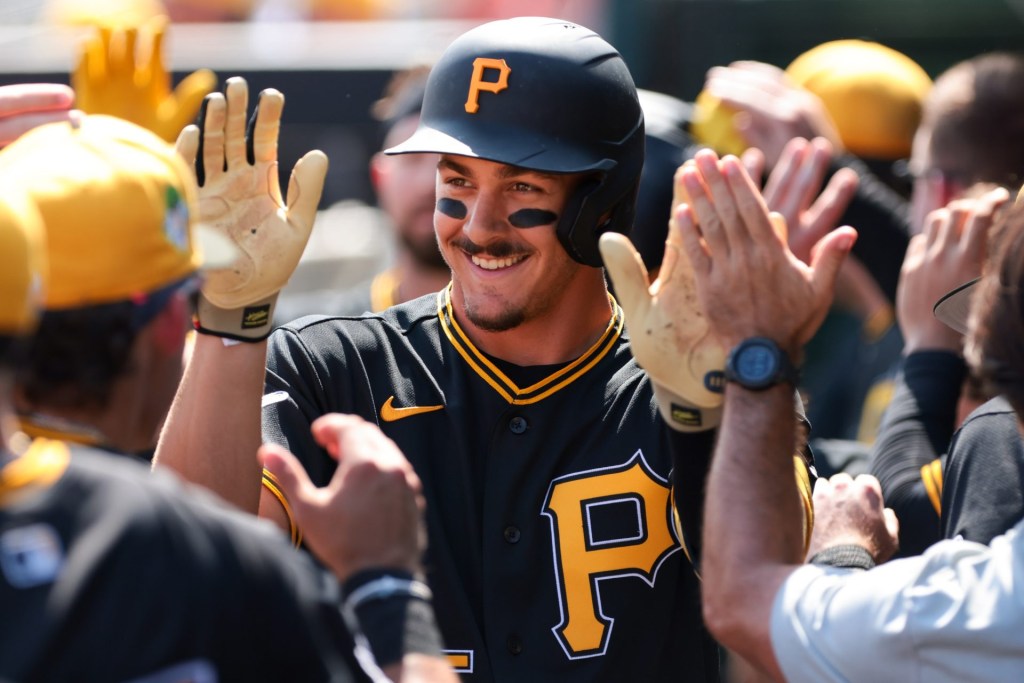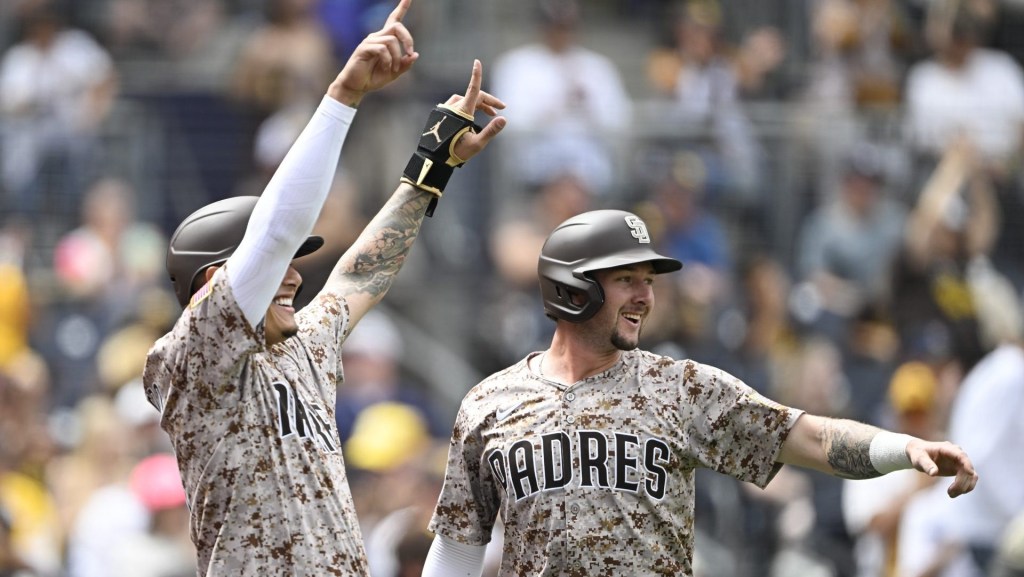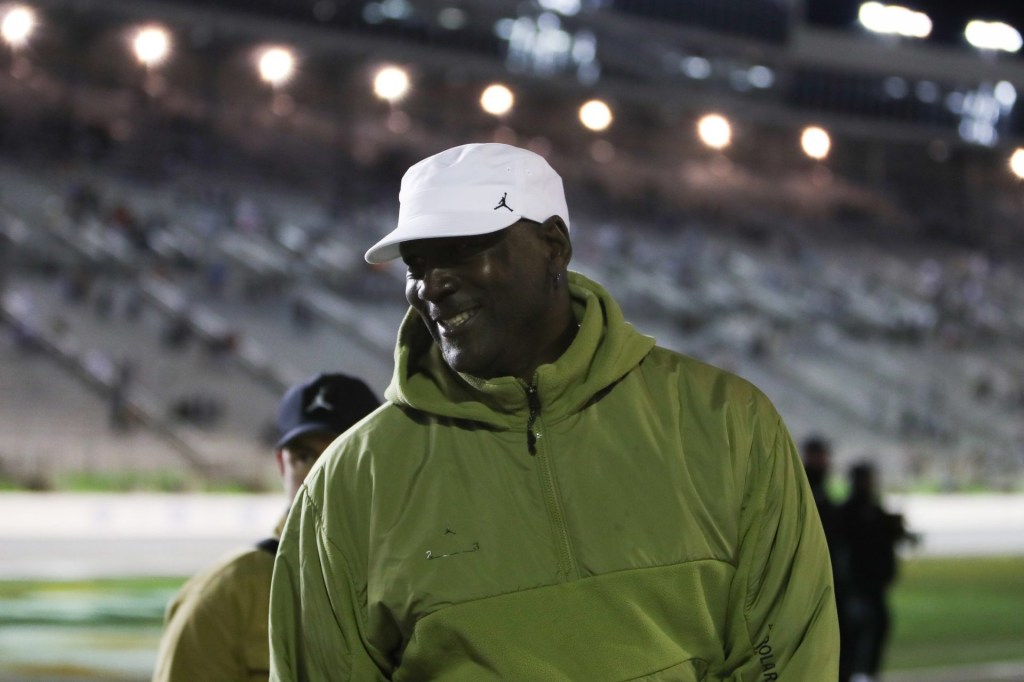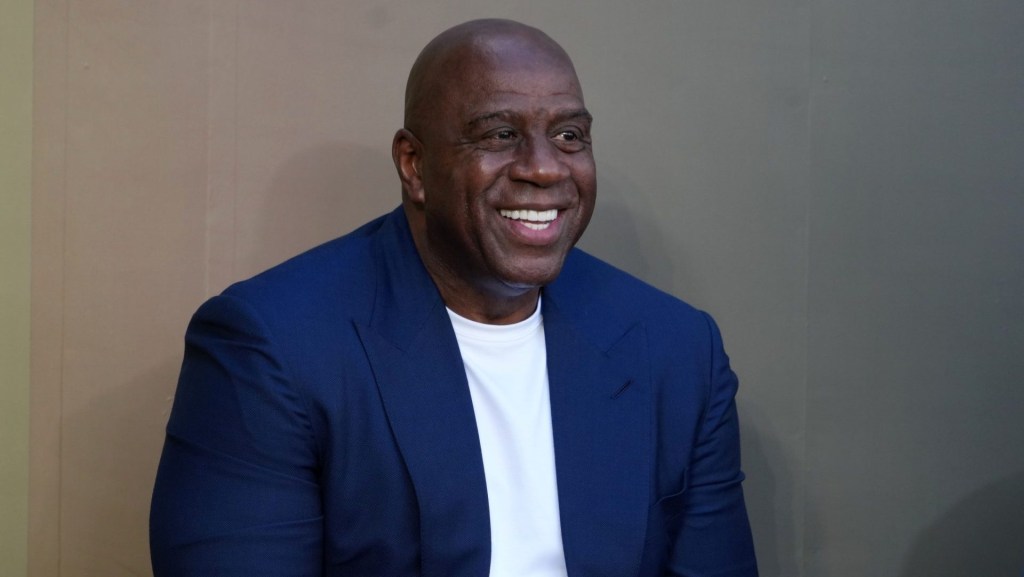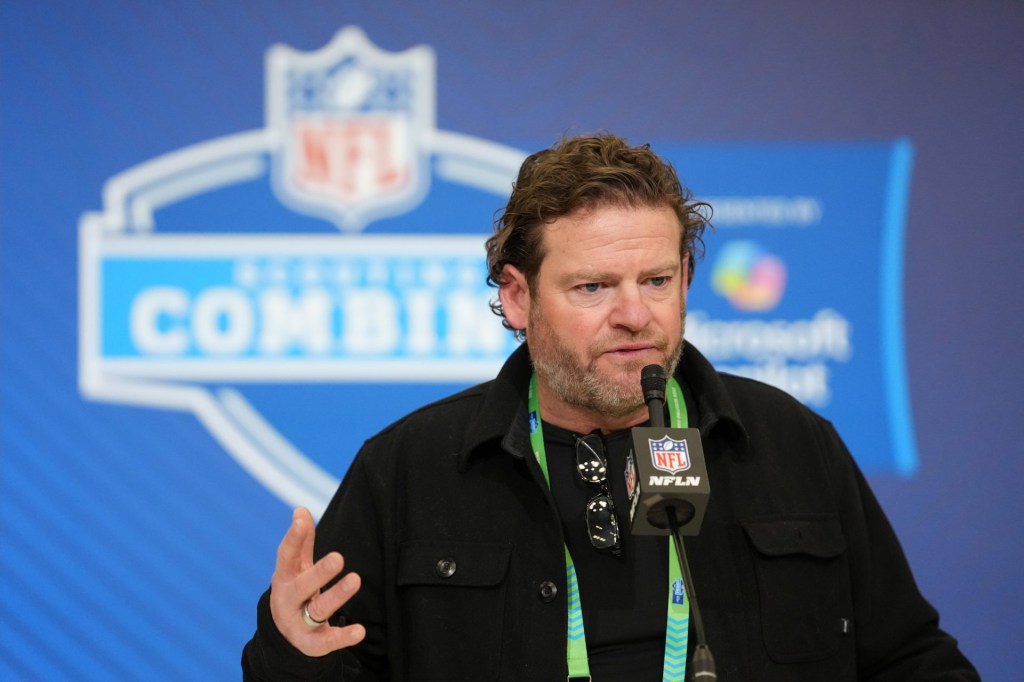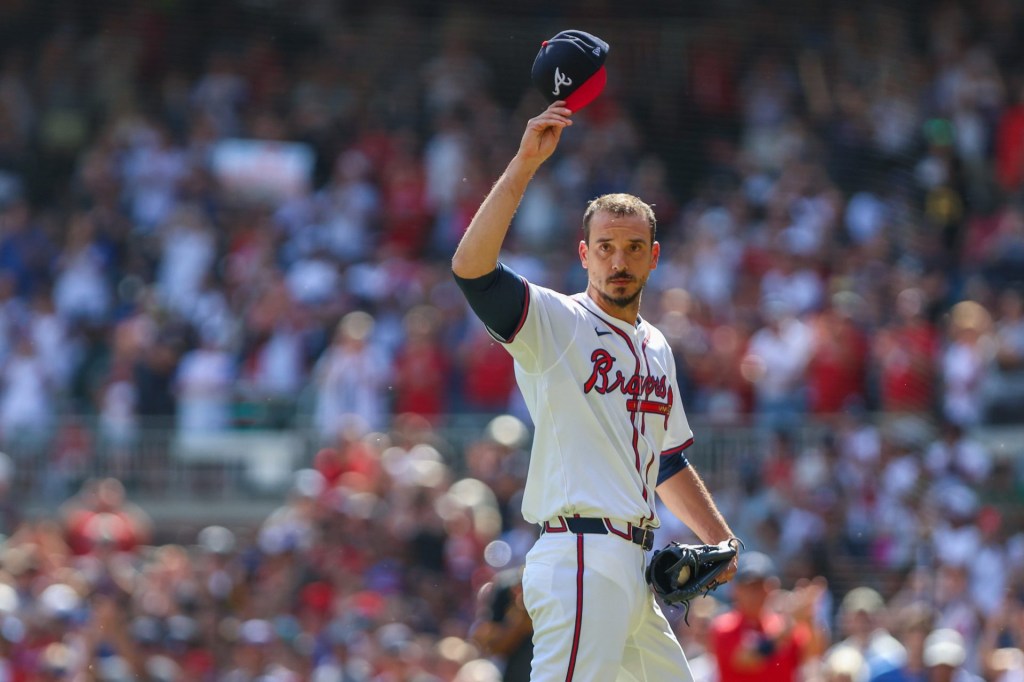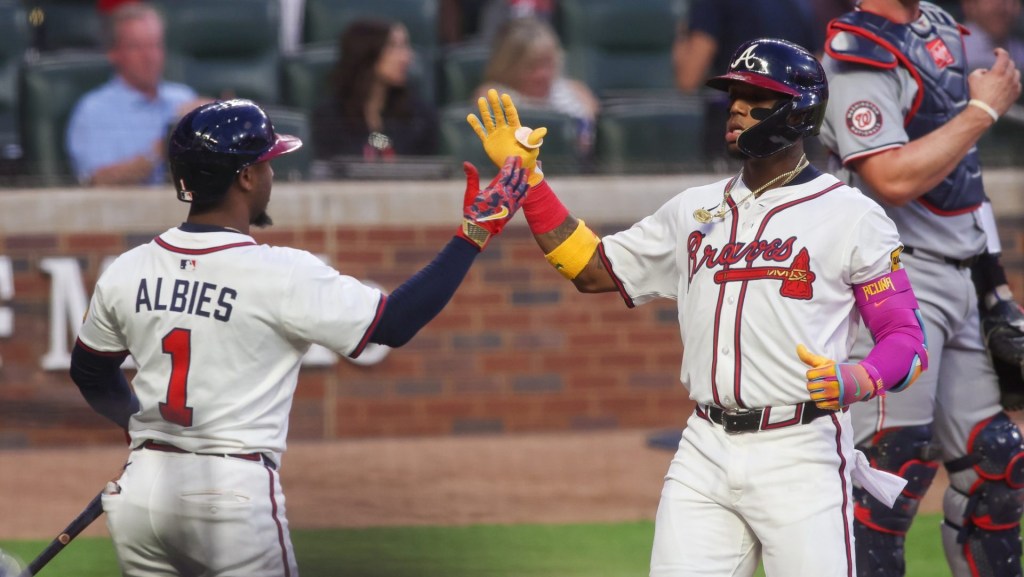Four years ago, Ralph Denk was in a quandary. A former professional cyclist, Denk had moved into management and owned one of the 18 European road-cycling teams that compete in the grand tours, including the Tour de France. The German describes his team, Bora-Hansgrohe, as “mittelstadt,” meaning a mid-ranking outfit.
The team occasionally delivered good results, but its horizons were limited by chronic shortages of money. Denk tells Front Office Sports that he was always on the lookout for new partners. Every year, more deep-pocketed investors were turning up in cycling. Previously, it had been the Emirati government; then it was a British chemical company, Ineos. The amount of money required to remain competitive was increasing. He approached a series of companies for additional investment.
Eventually, someone took the bait. It turned out to be a company whose headquarters were just 45 minutes away from Denk’s home in Bavaria. He had hooked Red Bull.
Red Bull occupies a unique position in global sports. No other private company has made the leap from sponsor to owner with such success. Since it bought its first Formula One team in 2005, its drivers have won eight championships—more than any other team. In soccer, it has made Champions League regulars out of its clubs in Austria and Germany and developed a long list of current stars.
As a way of promoting its actual business of manufacturing energy drinks, it has entered expensive and highly competitive sports—and outperformed those who are focused on nothing else. British professional rider Joe Laverick tells FOS, “Red Bull is the most exciting thing that has happened to cycling in years.”
Compared with F1 and soccer, where annual budgets for large teams run into nine figures, cycling is a much smaller sport.
According to La Gazzetta dello Sport, the total budget for the 18 men’s World Tour teams in 2025 is around €570 million ($580 million), or €32 million ($32 million) each. This means that, from Red Bull’s perspective, it could become the dominant player in a sport without having to lay out cash the way it has for F1 and soccer.
There’s big potential—but it’ll require patience. Red Bull’s prior experience shows it takes time to make a splash in a new sport, regardless of how rich the investor. And the company has shown it is capable of waiting.
When Red Bull sought to buy a football club in Germany to complement the team it owned in Austria, it approached several in the top tier, only to be shooed away. One of the principles of German football is that clubs belong to their fans, not to private companies. In its search for a club to buy, it was forced further and further down the pyramid, until it struck a deal for an amateur team close to Leipzig, a city in the east of the country. It rebranded SSV Markranstadt as RasenBallSport Leipzig (naming clubs after companies is also verboten) and steered the club through four promotions in eight years until it reached the Bundesliga.
RB Leipzig is now established as one of Germany’s most successful clubs. It reached the semifinals of the Champions League in 2020 and lifted its first trophy, the German domestic cup, in 2022. Over the border, Red Bull Salzburg has won the Austrian Bundesliga in 14 of the past 19 seasons. (It finished second in the other five years.)
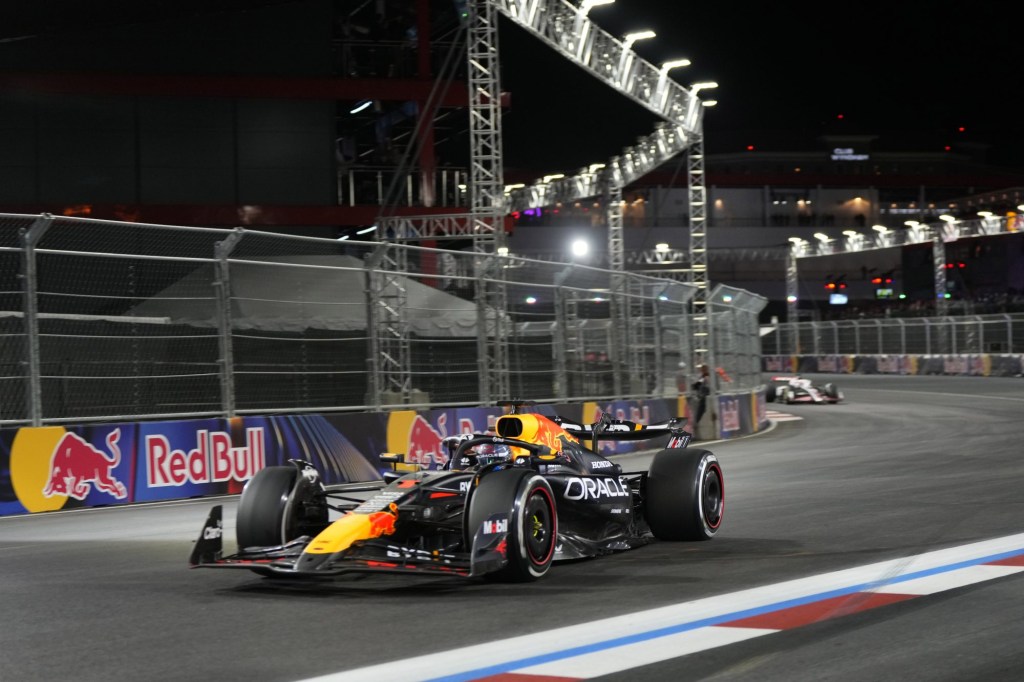
Alongside the clubs in Salzburg and Leipzig, it added teams in the U.S. and Brazilian leagues to create a network where best practices could be developed and shared. In 2012, the firm hired a German coach, Ralf Rangnick, as sporting director, who was renowned for his high-energy “gegenpressing” style. (This tactic was perfectly suited to Red Bull’s primary purpose of selling caffeinated drinks.)
Rangnick also believed Red Bull’s teams could gain a competitive advantage by focusing on developing young players. They were cheaper to sign, easier to coach into his style, and could bankroll the entire enterprise if they were eventually bought by bigger teams. Superstars such as Erling Haaland, Sadio Mané, Joshua Kimmich, and Ibrahima Konaté all spent formative years at Red Bull teams before moving on. Coaches frequently moved from one Red Bull team to another.
A similar template has worked in Formula One. Its first involvement in the sport came in 1989, when it sponsored an Austrian driver, Gerhard Berger.
It launched a driver development program in 2001, and three years later it bought the ailing Jaguar team. It took until 2010 before it won its first drivers’ championship, but the man who delivered it, Sebastian Vettel, was a graduate of Red Bull’s youth program. It supplemented its investment in development by seeking out the best managerial and technical talent, including legendary designer Adrian Newey from McLaren in 2009. In 2023, the Newey-designed RB19 car driven by Max Verstappen touched new heights. Verstappen won an unprecedented 21 of the season’s 22 races, setting a series of records that are unlikely to be beaten.
Red Bull’s first year in cycling has been modest. The deal with Denk was confirmed less than three months before the 2024 season’s major event, the Tour de France. Little could be accomplished with the firm’s investment before the race began.
In France, the team’s lead cyclist, Primož Roglič, was forced to withdraw after fracturing a vertebra in a collision. Roglič recovered sufficiently to get the new team’s first grand tour victory at the Vuelta e Espana in September.
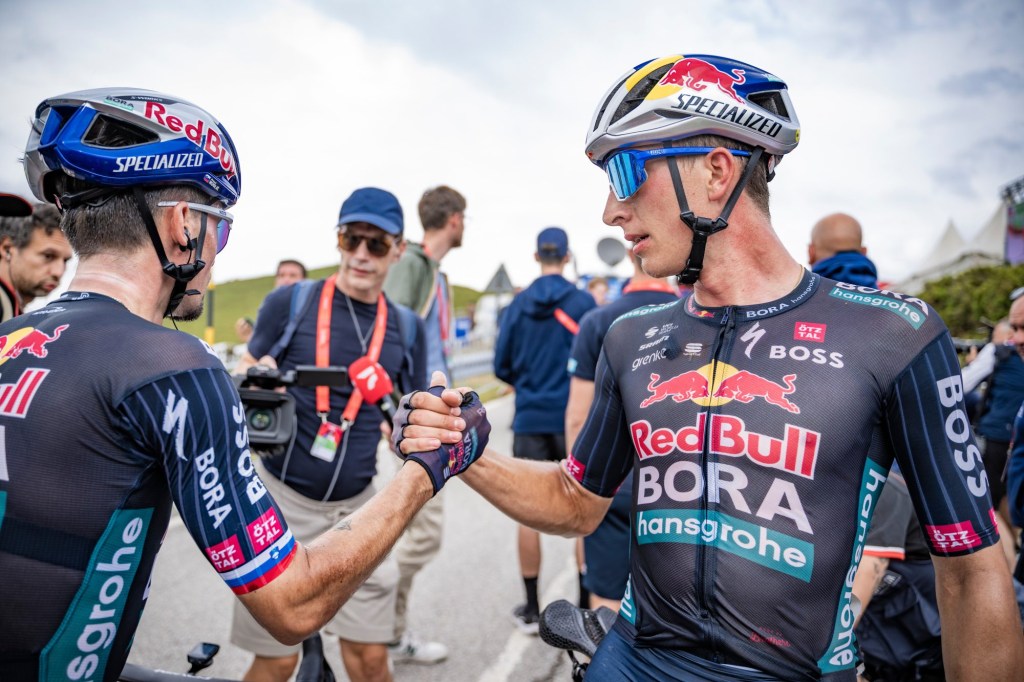
But the Tour de France is the main prize. Standing in Red Bull’s way is three-time winner Tadej Pogačar, the best cyclist of his generation. Pogačar rides for UAE Team Emirates, the best-funded team in the peloton, so it is unlikely he can be bought. Beating him will be tricky. He attacks with such audacity that it can look foolhardy. As the technology is so simple compared with motorsports, it is hard to overcome a talent gap.
It may be that Red Bull and Denk have to wait until Pogačar winds down. To maximize their chances of becoming the home of the next great rider, they have made some major investments in youth, just as they did in F1. They have poached a renowned coach, John Wakefield, from one of their main rivals and put him in charge of youth development. The team has launched a Rookies side, consisting of 12 under-23 riders, which include the Italian junior world champion, Lorenzo Finn.
It has also signed a British rider–turned-engineer, Dan Bigham, whom Laverick describes as “the godfather of modern-day cycling aerodynamics.” Like in soccer and F1, if there is an edge in preparing the team for competition, Red Bull wants to be the team that finds it.
Red Bull’s involvement across global sports has generated plenty of antagonism, however. In Germany and Austria, many fans dislike the Leipzig and Salzburg teams, which they consider to be synthetic and capitalist. When Jürgen Klopp announced he was joining the company as its global head of soccer, fans from his former teams made banners that criticized the popular German’s judgment. In F1, the Red Bull team’s dominance in 2022–2023 led to boardroom concerns that the sport was becoming dull.
Its participation in cycling may be less controversial, though. Fans tend to support riders, not teams, and cycling enthusiasts want more money and investment and exposure for the sport.“Red Bull is bigger than cycling,” Laverick tells FOS, “and Red Bull coming in and doing Red Bull things, ruffling feathers in a very traditional sport, will pull in new fans.” And as for the investment in Bora-Hansgrohe, Laverick is bullish. “If it ends badly,” he says, “it will say more about cycling than it will about Red Bull.”
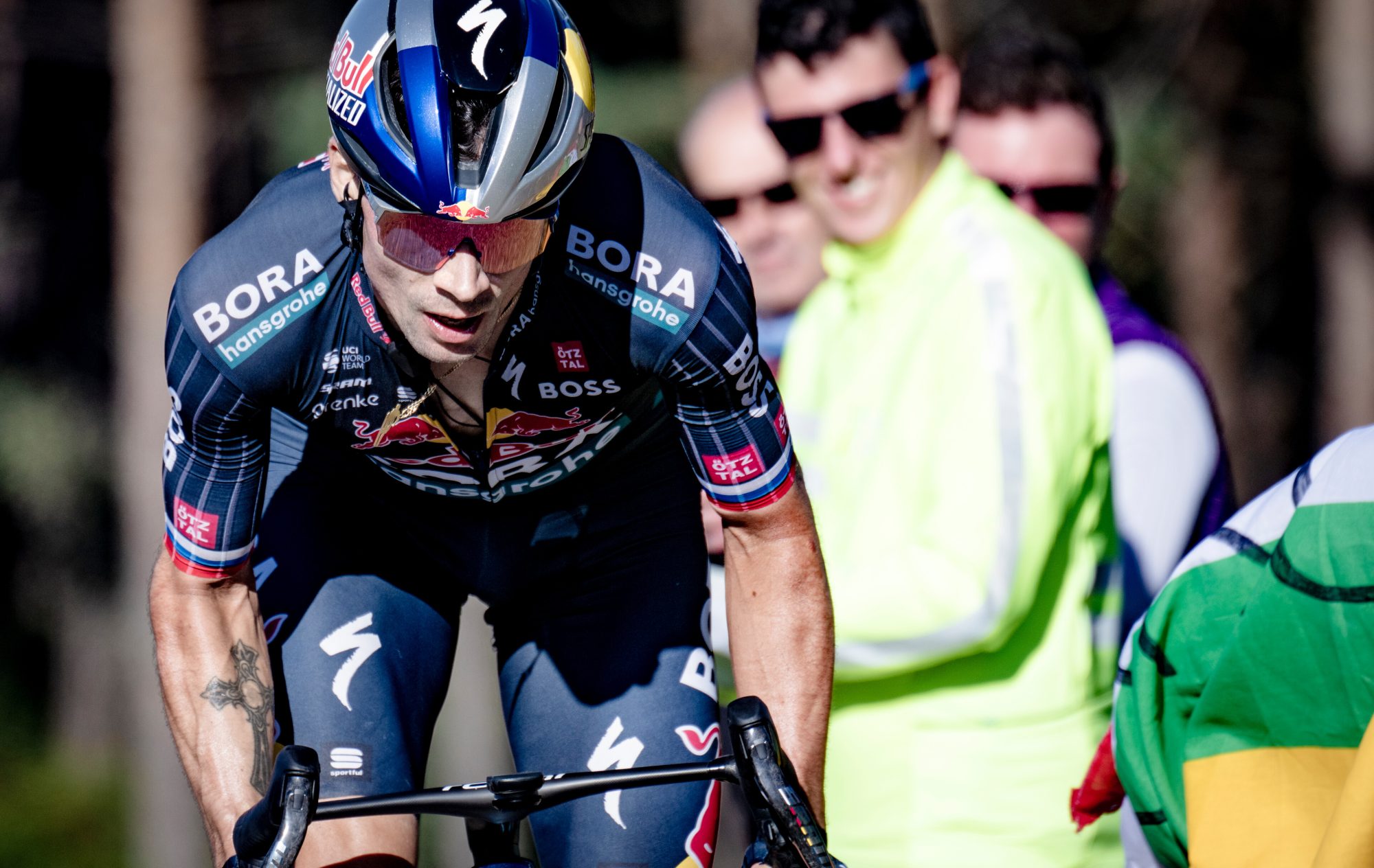



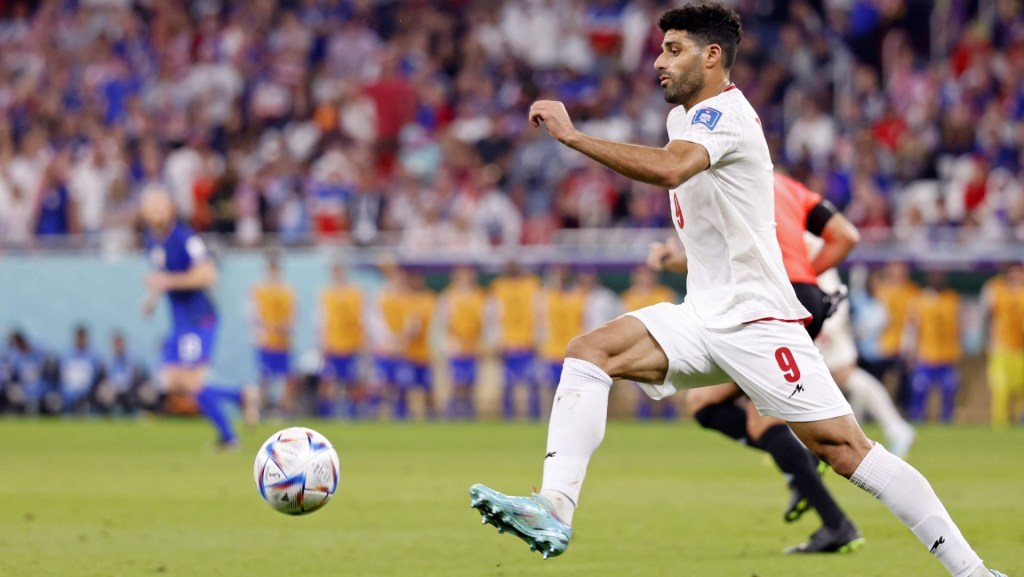


![[Subscription Customers Only] Jun 15, 2025; Seattle, Washington, USA; Botafogo owner John Textor inside the stadium before the match during a group stage match of the 2025 FIFA Club World Cup at Lumen Field.](https://frontofficesports.com/wp-content/uploads/2026/02/USATSI_26465842_168416386_lowres-scaled.jpg?quality=100&w=1024)
![[Subscription Customers Only] Jul 13, 2025; East Rutherford, New Jersey, USA; Chelsea FC midfielder Cole Palmer (10) celebrates winning the final of the 2025 FIFA Club World Cup at MetLife Stadium](https://frontofficesports.com/wp-content/uploads/2026/02/USATSI_26636703-scaled-e1770932227605.jpg?quality=100&w=1024)
